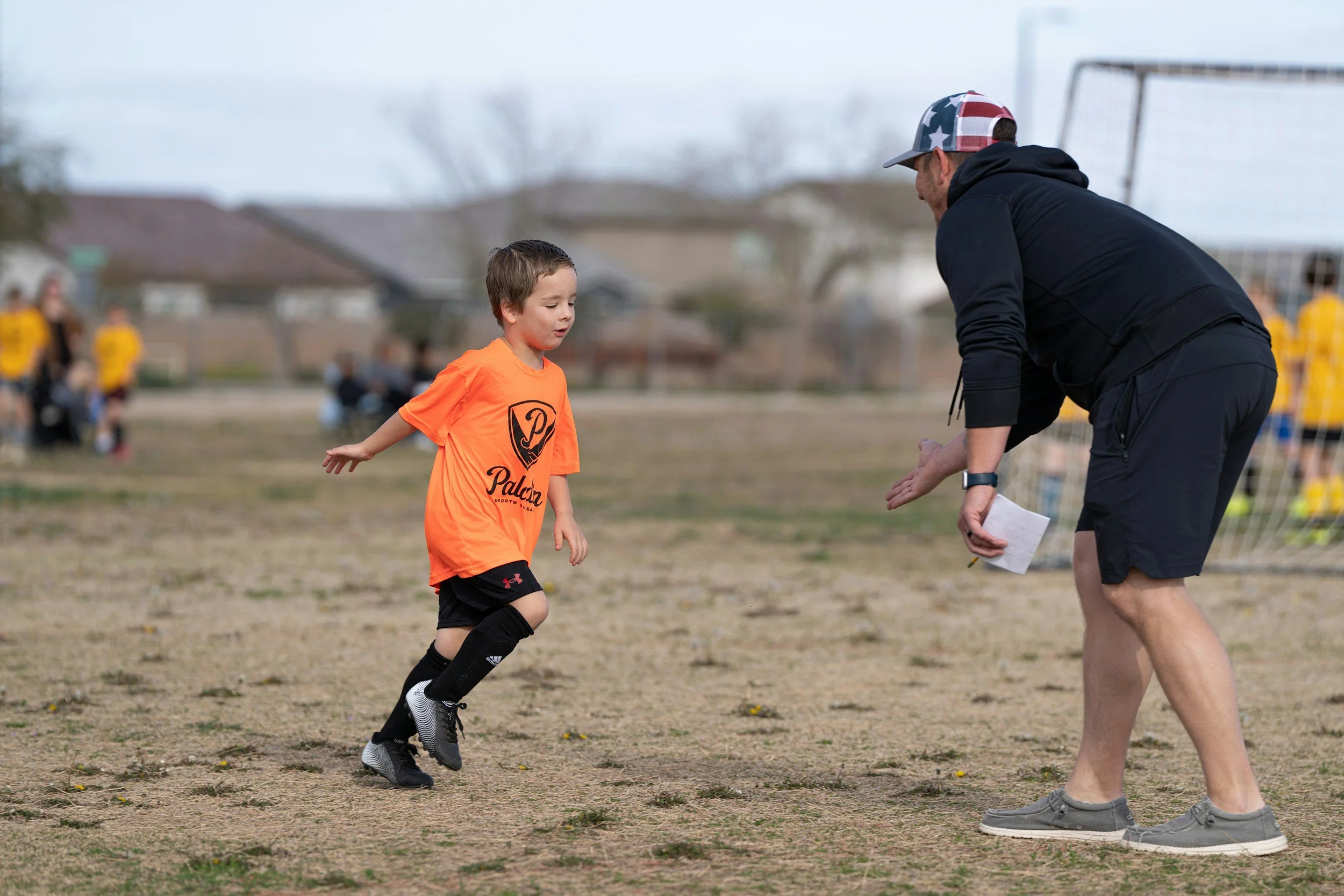Building Confidence in Young Athletes
Let’s talk about confidence—the kind that sticks around when a game doesn’t go your way, when a goal is missed, or when the starting lineup doesn’t include your kid’s name.
In youth sports, confidence can be the difference between a child who keeps showing up and growing—and one who quietly checks out. But confidence isn’t just built by winning or scoring. It’s built moment by moment through how we support, respond to, and encourage our kids in the highs and the lows.
Whether you’re a parent cheering from the sidelines or a coach calling the plays, here’s how to build real, lasting confidence in young athletes—no matter their age or skill level.
Applied Hope Tip #1: Celebrate the Effort, Not Just the Outcome
We all love to celebrate when things go well—but if we only focus on wins, we accidentally send the message that confidence should depend on performance. Spoiler: it shouldn’t.
How to Do It for Different Ages:
Young kids (ages 4–7): After a game or practice, skip the “Did you win?” and ask, “What was your favorite part?” or “What did you try hard at today?” Follow it up with something like, “I saw you hustling after that ball—you were working so hard!”
Elementary/Middle schoolers: Say things like, “I know you were nervous to try that new skill, but you gave it your all—that takes guts.” Reinforce bravery and effort over perfection.
Teens: Validate their experience with honesty: “I could tell you were frustrated with how that game went, but I saw how focused you stayed. That level of effort matters—and it shows.”
Why It Works:
When kids see that their effort is valued—even when the scoreboard doesn’t go their way—they start to believe in their ability to grow. That’s confidence built from the inside out.
Applied Hope Tip #2: Help Them Reframe Mistakes and Setbacks
Mistakes happen. Bad plays happen. Embarrassing moments happen. And confidence often takes the hit. But what if we taught kids that those moments weren’t failures, but part of getting better?
How to Do It for Different Ages:
Young kids: Keep it simple: “Oops! That didn’t work—but now your brain knows what to try next time!” Make “messing up” feel normal and even a little fun.
Elementary/Middle schoolers: Talk through it: “That play didn’t go how you wanted—what do you think you’d try differently next time?” Invite reflection without shame.
Teens: Normalize the discomfort: “I know that moment probably felt awful, but it doesn’t define you. It’s just one part of your journey. What did it teach you?”
Why It Works:
Confidence isn’t the absence of failure—it’s the belief that failure isn’t final. Helping kids reflect and recover builds emotional flexibility and keeps their self-worth steady even when performance dips.
Applied Hope Tip #3: Let Them Lead and Make Decisions
One of the most underused confidence builders? Autonomy. When kids get to lead—whether it’s making decisions, setting goals, or solving problems—they begin to trust their own voice.
How to Do It for Different Ages:
Young kids: Let them pick their own pre-game ritual (lucky socks, special handshake) or decide what they want to work on at the next practice.
Elementary/Middle schoolers: Ask, “What’s one goal you want to focus on this week?” or “What would help you feel more prepared next time?”
Teens: Give them a seat at the table: “How do you want to approach that challenge? Want to brainstorm or think it through on your own first?”
Why It Works:
Confidence grows when kids feel trusted and capable. Giving them ownership over their choices—big or small—shows them that their voice matters.
A Finishing Touch
Confidence isn’t just something athletes have—it’s something they build. And as the adults in their corner, we have so much power to shape how that confidence takes root.
Today, pay attention to how you talk about effort, mistakes, and growth. Find a moment to say, “I’m proud of how you showed up today,” instead of just “I’m proud of how you played.”
Because when kids believe that they’re more than their stats, more than their performance, and more than any one moment—they carry that confidence far beyond the field.
And trust me: that’s the kind of win that really matters.

